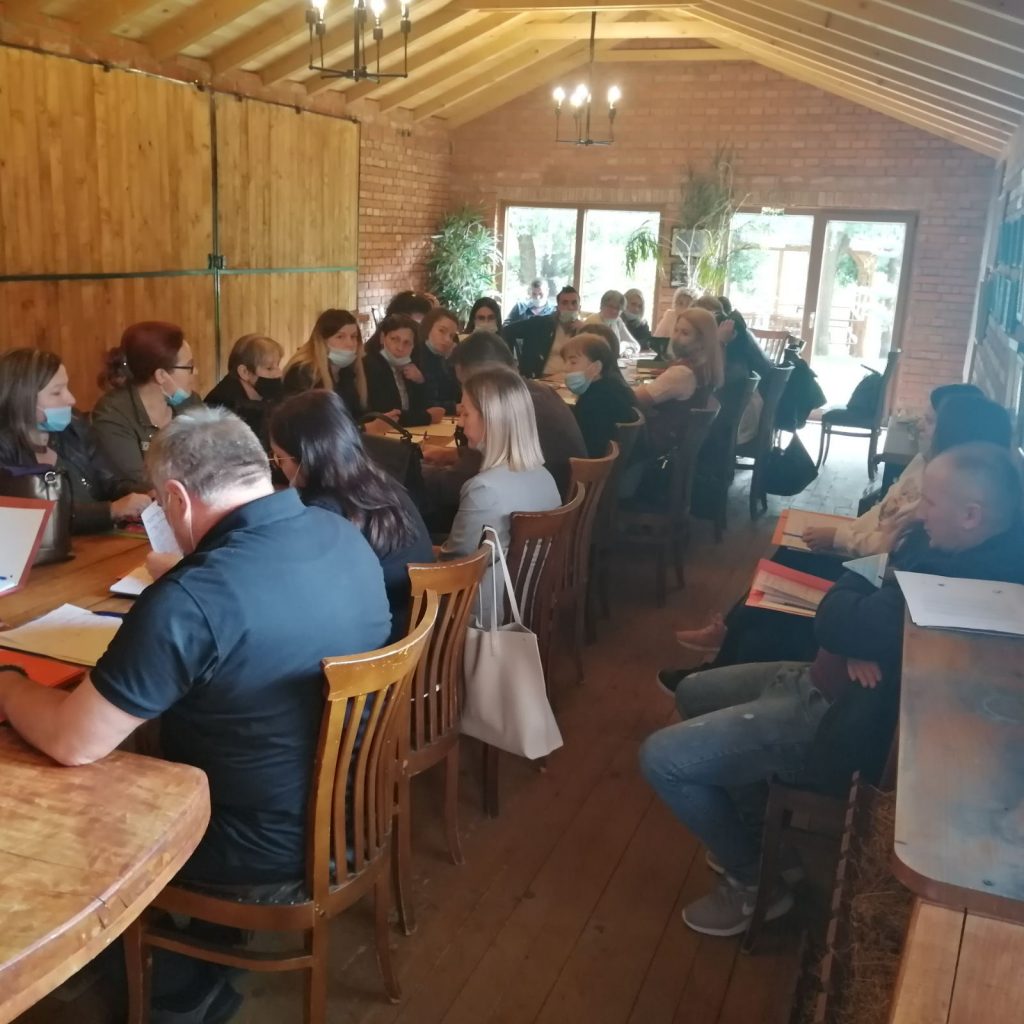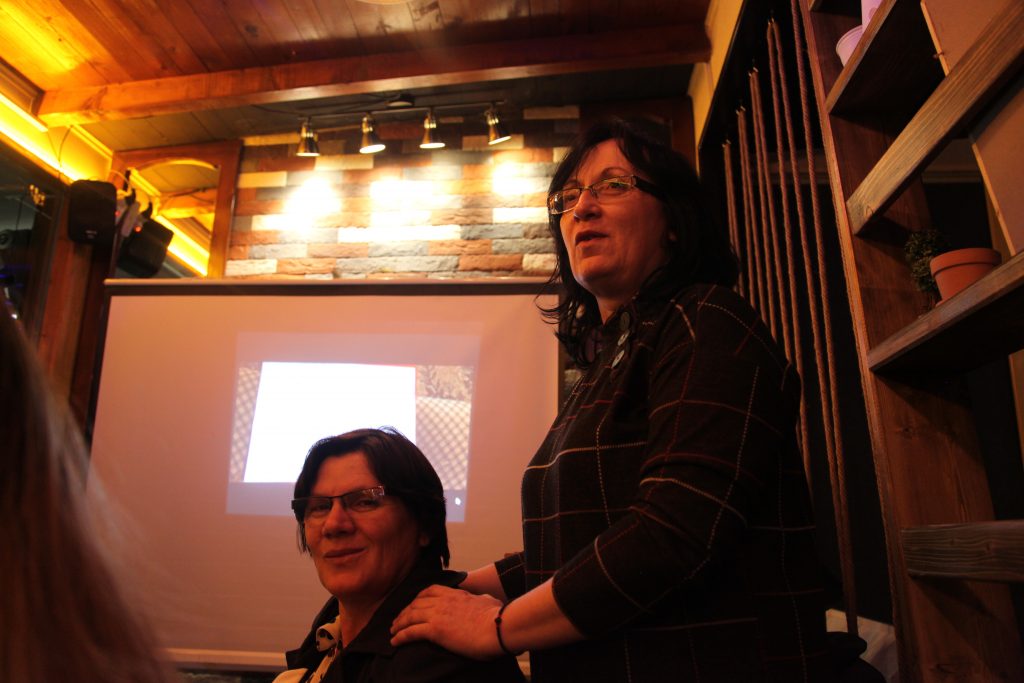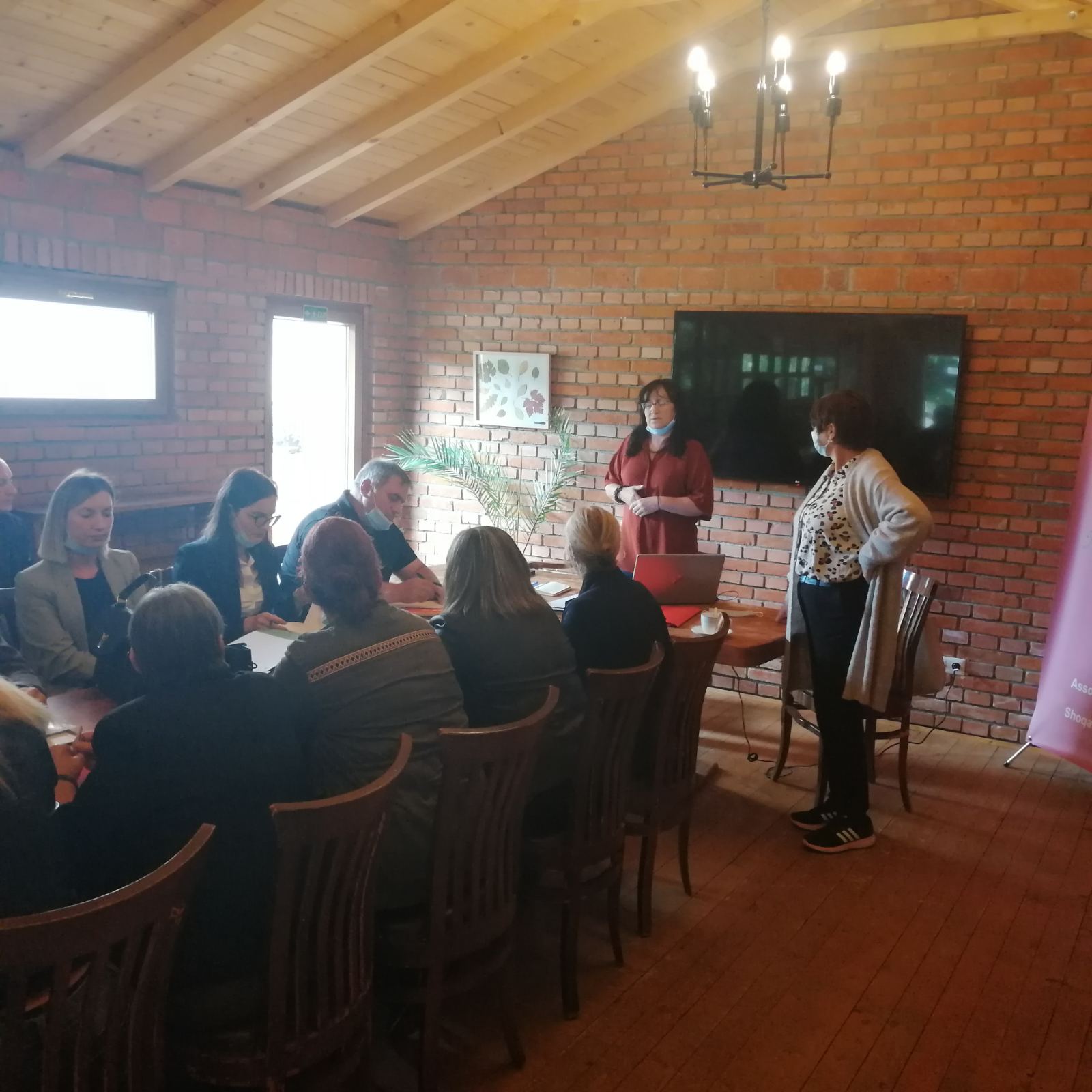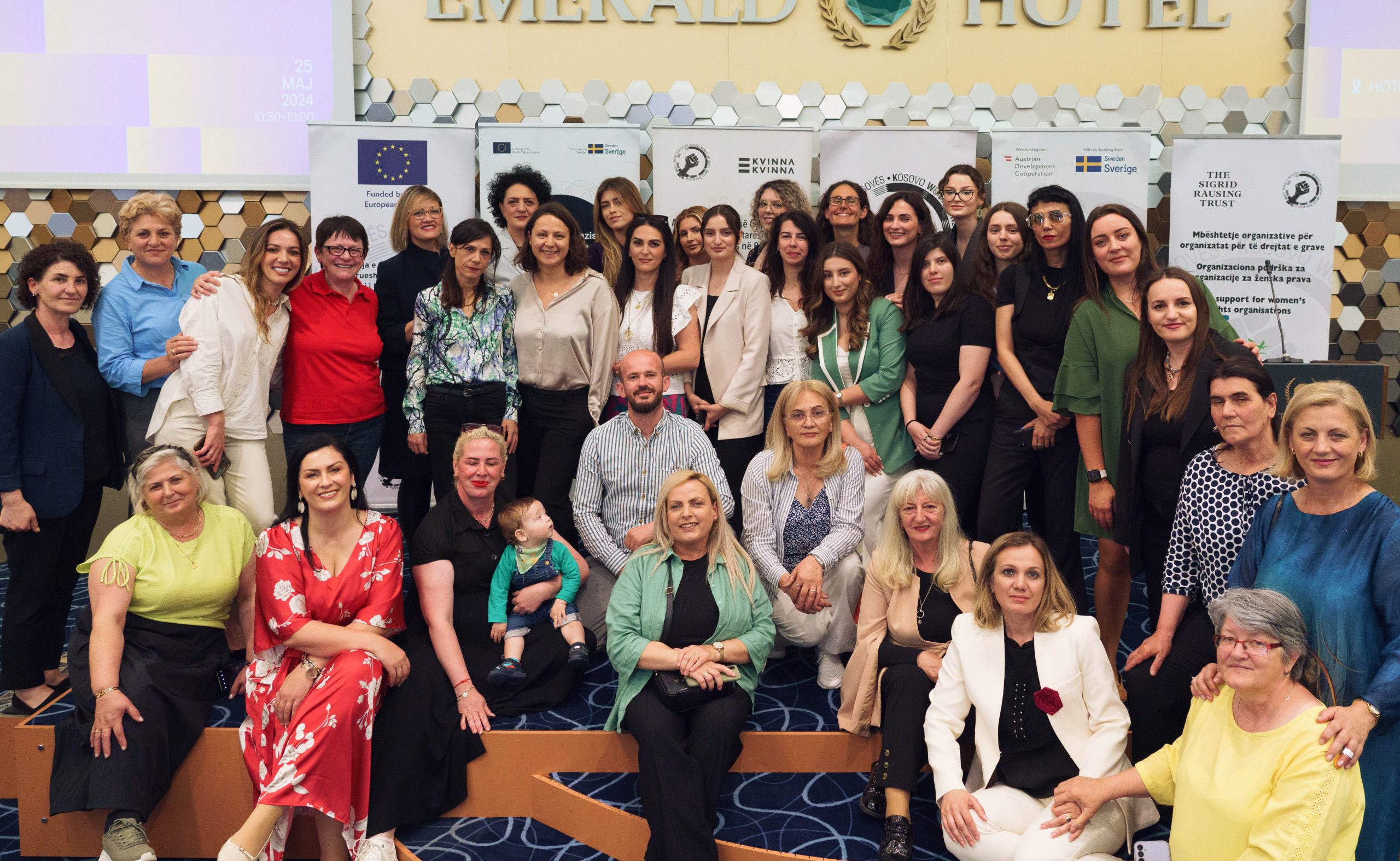The Women’s Association (UDZ Naš Dom) together with Women’s Centre for Rural Development (QGZHR), from November 2019 to September 2020, held meetings in five municipalities ( Novo Brdo, Ranilug, Gračanica, Partesh, Kllokot) in order to finalize Action Plan and exchange of views on the potential of women entrepreneurs.
These meetings were held in the framework of the initiative “Partnership for Development (of women’s entrepreneurship development-friendly environment)”, supported by the Kosovo Women’s Fund (KWF) and funded by the Austrian Development Agency (ADA).

Women gathered to create mechanisms and adapt tools to support and create favorable conditions for the development of women entrepreneurs at the local level. From these activities, the two member organizations of the Kosovo Women’s Network (KWN) found that none of these municipalities included a gender component in budget planning.
At a roundtable organized by UDZ Naš Dom, in Upper Makresh on 30 September, representatives from these municipalities gathered to discuss the problems faced by women, recommendations for local institutions, as well as initiatives to support women’s entrepreneurship in the above-mentioned municipalities.
“Of the total number of businesses registered in the name of women, only 3% are actually owned by women (this percentage change from 2.5% to 5%, depending on the municipality),” said Vesna Stajic, Director of UDZ Naš Dom, adding that “none of the five municipalities has incentives intended to encourage the development of women’s entrepreneurship”.

During the ten months of project implementation, UDZ Naš Dom and QGZHR also advocated to local institutions with recommendations gathered from meetings with women.
The recommendations are as follows:
1. Through regulations to encourage and motivate the participation of women in the identification of the mechanisms and drafting priorities for proposal (local village councils, working groups, professional commissions) of the percentage provided by the Law on Gender Equality (50%).
2. Introduce of the gender component in the budgeting for upcoming year.
3. Introduce of facilitation in tax registration and payment for women start-up businesses, plan subventions for the development of women businesses.
4. Planning social services (kindergartens, nurseries, assistance and home care for the elderly and sick) for the communities that respond to the needs of vulnerable groups, their greater social inclusion and quality improvement of life.
5. Find a solution for creating local transport within municipalities together with stakeholders – local businesses and citizens.
6. Appoint a team of experts from the relevant directorates to work on the preparation of local economic development, which would include projects that would involve women.
7. To appoint a team of experts from the relevant directorates for capacity building of women interested in the labor market in the field of employment and self-employment.
8. Provide space for opening a Business Incubator for start-up businesses, which would mobilize and encourage women to participate in the economy.
Meanwhile, Shefkije Mehmeti, Director of QGZHR among others presented the recommendations collected for local women’s NGOs, women’s CSOs and women’s groups:
1. Inform women about the advantages of registration in the labor market.
2. To inform the citizens about the current laws and their right to work and employment, education (as well as other rights regulated by law), as well as about the mechanisms and means by which they can fight for their rights.
3. Focus advocacy activities / campaigns on the introduction of gender responsive budgeting (GRB) in local budgets, which would promote the development of women’s entrepreneurship, the opening of social enterprises, women’s leadership and participation. Also, to inform consumers about the benefits of producing organic products.
4. Focus activities on increasing the number of women in decision-making positions.
5. Monitor planning and spending of local budget; The analyzes should be submitted to the relevant institutions and made public.
6. To approve the action plans for Networking of three sectors (public, civil and economic) in order to create a favorable environment for the development of women’s entrepreneurship
7. To work on the motivation of individuals or legal entities (business associations, CSOs, groups) for networking, which emphasizes the role of women entrepreneurship in the community, joint market entry and the start of social enterprises.
8. Increase the visibility of women entrepreneurship through organized events.








